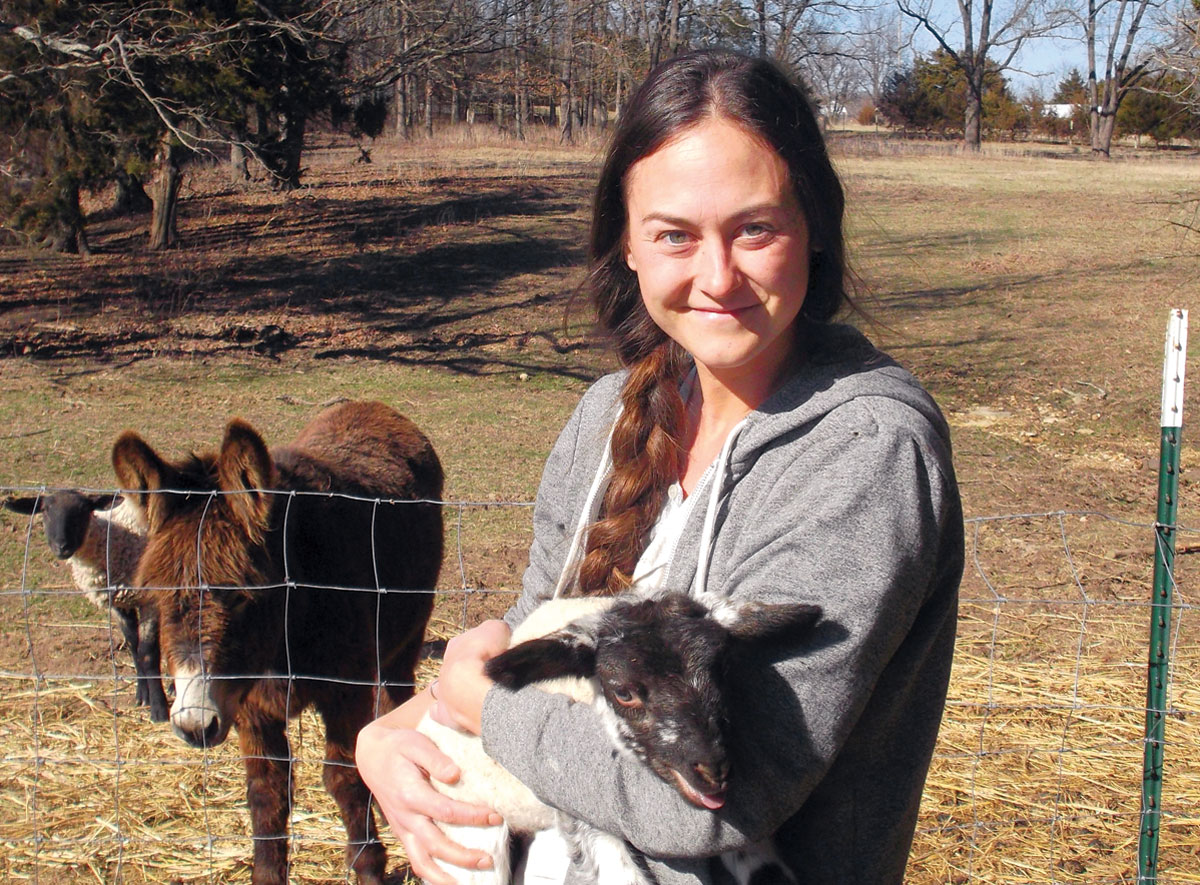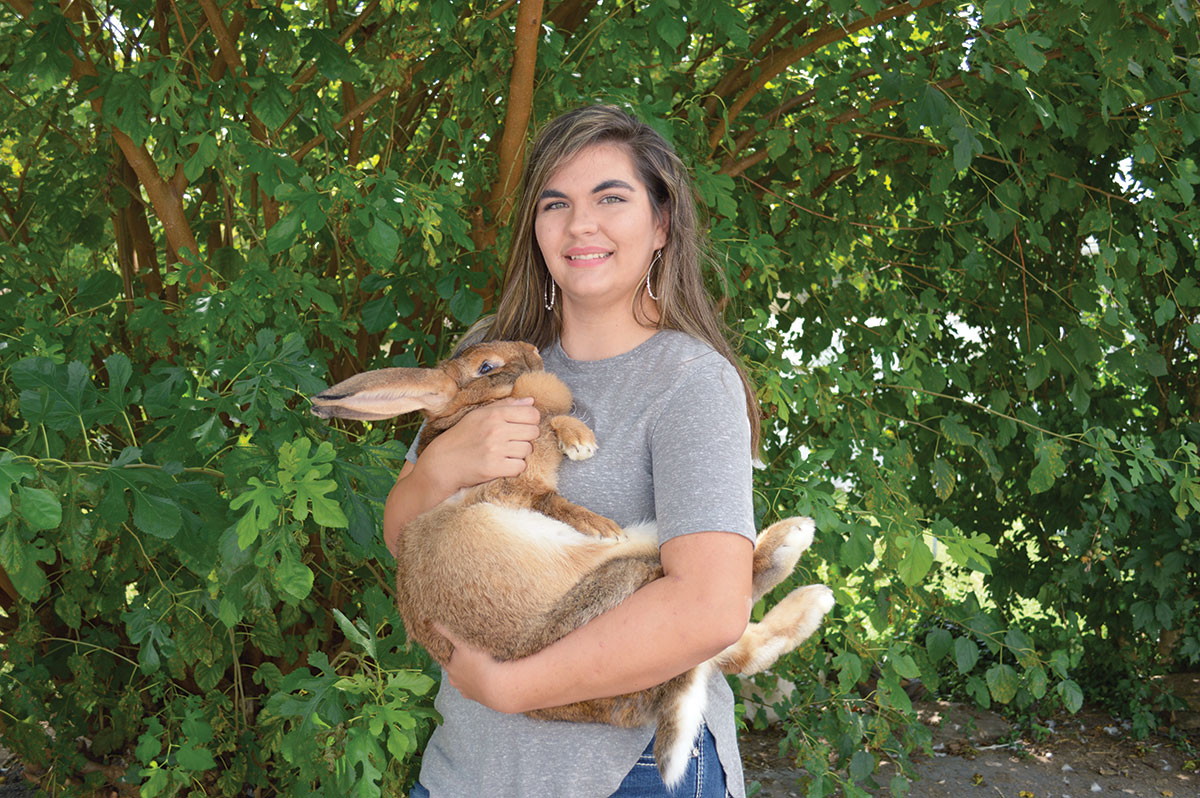
Lacy and Dustin Stewart have variety of livestock, but focus on lamb production for two markets
Lacy and Dustin Stewart’s farm, The Stewart Settlement, located in the Pleasant Hope community in Polk County, Mo., is a very diverse operation.
The enterprises on the farm range from a wedding and event venue to meat rabbits to pigs and sheep. Every enterprise serves a purpose at The Stewart Settlement, and one of the most versatile is Lacy and Dustin’s sheep flock.
Lacy and Dustin began their sheep venture in 2016. Their current flock consists of seven ewes, one ram and nine lambs from their 2018 lambing season.
Their stock is a mix of Katahdin and Suffolk breeds, and is guarded by their Great Pyrenees, Bella. Katahdins are a hair sheep breed, so they do not require shearing, and are generally raised for meat.
They are popular among farms of all sizes due to their hardiness, adaptability and their tendency to produce good lamb crops. Suffolks are a multipurpose meat and wool breed with a medium wool type, and these large, black-faced sheep are often crossed with other breeds with satisfactory results.
The Katahdin and Suffolk crosses in Lacy and Dustin’s flock give them ample marketing opportunities for both meat and fiber.
The first goal of The Stewart Settlement sheep flock is meat. Ram lambs are raised and processed to provide meat for the farm family and for off-farm retail sales. Lacy and Dustin’s goal is not just meat sales, though – they are also passionate about using their sheep for education and outreach.
“We had an on-farm processing workshop this year,” said Lacy.
She and Dustin held a two-day event with a close friend in the butchering business where participants paid to come to the farm and learn the art of dispatching and processing a whole lamb and a whole hog from start to finish. The workshop generated a good deal of interest in their community and the Stewarts hope to hold another event in the future.
The fiber side of The Stewart Settlement sheep flock is a relatively new development.
Lacy is involved with the fiber art community in their area and said that she “has found interest in the sheep hides due to the mix of breeds.” She has begun saving and tanning the colorful sheep hides to sell to fiber artists.
The Stewart Settlement is 50 acres of mixed pasture and hardwood stands, and the land lends itself well to Lacy and Dustin’s rotational grazing program.
The sheep’s main diet consists of forage, and Lacy noted that the ewes are supplemented with additional feed during late gestation and early lactation to help them stay in peak condition.
The rotational grazing program allows the Stewarts’ to stay ahead of potential parasite problems; they deworm their flock once a year with Ivermectin, and apple cider vinegar is periodically added to the sheep’s water sources as an additional parasite preventative. Hoof trimming is done as needed.
Lacy prefers a late winter/early spring lambing season.
“We like having them early, as the lambs are stronger,” she said.
Their Suffolk ram is put in with the ewes in September, and stays with the main flock until December, when he goes back to his bachelor lifestyle with his friend Connie the donkey.
Lambing season begins in February and is one of Lacy’s favorite times on the farm.
Guests of the wedding and event venue, and farm clients and friends also love lambing season at The Stewart Settlement. Lacy and Dustin plan to retain most of their ewe lambs and continue building their multipurpose flock to be better with each passing year.






